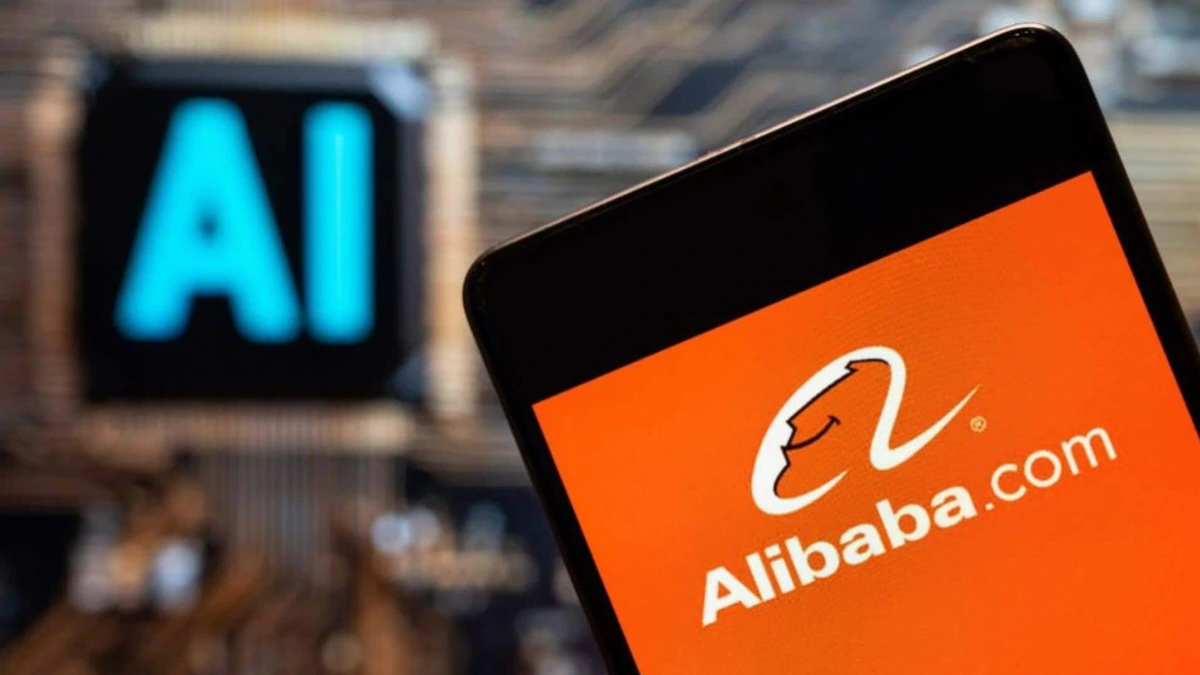BEIJING, (TECHY QUANTUM) ~ Alibaba Group Holding Ltd. has launched a new artificial intelligence chatbot integrated into its Quark app, marking a renewed effort by the Chinese e-commerce giant to strengthen its foothold in the consumer AI space.
The free service allows users to interact with the chatbot through voice or text, offering real time information and assistance, according to a company statement issued Thursday.
The rollout represents Alibaba’s latest attempt to build a successful consumer facing AI product, an area where it has lagged behind domestic rivals ByteDance and Tencent.
Alibaba’s previous focus in artificial intelligence has largely centered on enterprise clients through its cloud computing division.
The launch of the new Quark chatbot demonstrates a strategic pivot toward individual users. The Quark app began as a lightweight browser but was redesigned earlier this year into Alibaba’s flagship consumer platform.
The updated version features search capabilities and AI powered tools intended to make the app a one stop hub for digital interaction.
This is not Alibaba’s first foray into consumer AI. In late 2023, the company introduced Tongyi, a conversational assistant app. Despite its early arrival, Tongyi failed to attract broad public adoption.
Data from industry tracker Aicpb.com show that by September 2025, the app had 6.96 million monthly active users far behind competitors.
ByteDance’s Doubao led the Chinese market with 150 million monthly active users, followed by DeepSeek with 73.4 million and Tencent with 64.2 million.
Alibaba’s new chatbot is powered by its latest Qwen3 large language model series, which the company claims delivers stronger reasoning and execution capabilities than previous versions.
Industry experts view this launch as a calculated step for Alibaba to reassert its presence in the consumer AI segment.
“The Quark chatbot shows Alibaba’s determination to move beyond enterprise services and connect directly with everyday users,” said Kevin Zhou, an analyst at Beijing based consultancy TechView Research.
“It’s a strategic response to the massive consumer traction that ByteDance and Tencent have already achieved in AI-driven content and communication.”
Others believe Alibaba faces a steep climb. “Alibaba’s strength is in infrastructure and enterprise level AI models,” said Elaine Wu, senior researcher at Asia Digital Insight.
“But converting that technical foundation into sticky consumer engagement is a different challenge entirely.” Wu added that integrating AI into Quark gives Alibaba a potential advantage because the app already has a young, tech savvy audience.
“If the chatbot experience feels natural and useful, it could help Alibaba regain ground in a market where it has struggled to compete.”
According to public data, Alibaba’s Tongyi app accounted for less than 5% of China’s total consumer AI app users as of September.
ByteDance’s Doubao dominated the space, followed by DeepSeek and Tencent’s AI assistant. Globally, AI chatbots are rapidly becoming integrated into mainstream consumer platforms.
Google has embedded its Gemini model across its services, Microsoft has expanded Copilot into Windows and Office tools, and OpenAI continues to build on ChatGPT’s global reach.
Alibaba’s Qwen3 model, unveiled last month, reportedly contains over one trillion parameters, making it one of the largest AI models developed in China.
The company aims to leverage that capability to create more human like conversations and responsive features for users. Early reactions in China have been mixed.
“I downloaded Quark mainly for AI search, but the chatbot feels like an interesting upgrade,” said Li Wei, a university student in Shanghai. “If it’s fast and accurate, I might use it daily for schoolwork and travel planning.”
A Hangzhou based software developer who works with Alibaba Cloud said the move reflects internal urgency. “Alibaba knows it can’t afford to fall behind in consumer AI,” he said.
“This chatbot is part of a broader push to show that the company can innovate beyond e-commerce and cloud services.” However, some users remain cautious. “I already use Doubao and Tencent’s AI,” said 27 year old marketing specialist Zhang Min.
“Unless Quark offers something truly different, it might be hard to switch.” Alibaba’s success will depend on how effectively it integrates the chatbot into daily consumer experiences.
Analysts believe Quark’s combination of AI search, voice interaction, and potential hardware links could help differentiate it from competitors.
Adding to its AI ecosystem, Alibaba announced pre sales for its Quark AI Glasses, which will begin at midnight Friday on Tmall, priced at 4,699 yuan around $660.
Deliveries are scheduled to start in December. The glasses will reportedly support real time translation, image recognition, and voice interaction powered by the same Qwen3 model.
Still, challenges persist. Regulatory scrutiny over data use and generative AI content remains tight in China, requiring tech firms to ensure compliance while maintaining innovation.
“Trust and transparency will be key factors in winning users,” Zhou said. Alibaba’s launch of an AI chatbot within the Quark app signals a decisive shift toward consumer focused innovation.
Backed by its powerful Qwen3 model and growing AI hardware ecosystem, the company aims to challenge its rivals in China’s competitive AI assistant market.
Whether the Quark chatbot can achieve the mass appeal of Doubao or Tencent’s assistants will depend on its performance, reliability, and the value it brings to users’ daily lives.
For now, Alibaba’s renewed consumer push underscores the intensifying race among Chinese tech giants to dominate the AI frontier.
